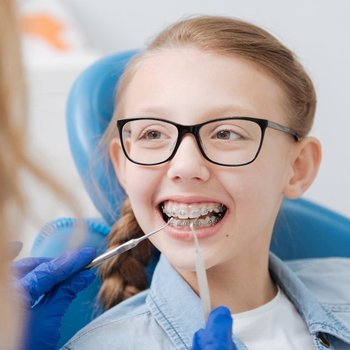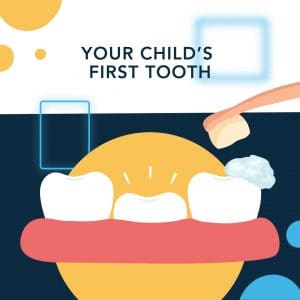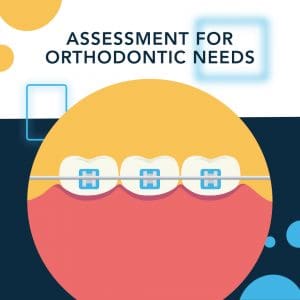Caring for your child’s teeth is critical for their overall health and for building good oral hygiene habits from an early age. As a parent, it is essential to know the right techniques and routines to prevent dental problems such as cavities and gum disease.
From taking care of your infant’s first tooth to instilling good oral hygiene habits throughout teenage years, we will explore effective brushing and flossing techniques, the importance of regular dental check-ups, and how to encourage a positive attitude towards dental health in your child.
The Importance of Children’s Dental Health
Children’s dental health is a crucial aspect of their overall well-being and development. Healthy teeth are essential for proper chewing and nutrition, clear speech, and a well-formed facial structure. Early dental care helps avoid cavities and gum disease, which can lead to pain, difficulty concentrating, and missed school days. Establishing good oral hygiene habits early on also lays the foundation for a lifetime of healthy teeth. Prioritizing dental health is a very important factor in supporting a child’s physical, emotional, and social growth.
Dental Care for Infants
Early dental care is essential for infants to establish good oral health habits and prevent future problems. Baby teeth are important for speech development, proper chewing, and guiding permanent teeth into place. Starting dental visits early helps identify issues such as tooth decay or misalignment. This ensures timely intervention and fosters a lifetime of healthy smiles.
Cleaning Gums
It is important to clean the gums of infants who do not have teeth yet on a daily basis. This can be done using a soft, damp washcloth or a special gum brush for babies, in a gentle manner. This practice helps to remove harmful bacteria from the gums, reduces the risk of early tooth decay, and establishes a routine that promotes healthy dental habits.
First Tooth
The appearance of your child’s first tooth is an important milestone, usually happening around six months of age. This event indicates that it’s time to begin brushing their teeth with a small, gentle-bristled brush and a small amount of fluoride toothpaste. It’s also a good idea to plan their first dental checkup to ensure everything is progressing as it should.
First Dental Visit
Your child’s first dental visit should ideally take place by their first birthday or within six months of their first tooth’s appearance. This early introduction helps familiarize your child with the dental environment, allowing your Davie dentist to check for early signs of dental issues and to provide guidance on proper oral care.
Establishing Dental Routines for a Toddler
Establishing dental routines for toddlers is essential to ensure their overall oral health. Early habits such as brushing and flossing help to instill good hygiene practices, and regular dental checkups from a young age promote preventive care and the early detection of dental issues. These routines form the basis for a lifetime of healthy teeth and gums, which support proper development and confident smiles.
Teach Brushing Techniques
Teaching effective brushing techniques is a great way to establish good dental routines with your toddler. You can demonstrate how to gently move the brush in small circles, covering all surfaces of each tooth. You should also encourage them to brush for two minutes twice a day, and you can even make the process fun by using a timer or a catchy song to keep them engaged and entertained.
Introduce Flossing
Introducing flossing to your toddler is an essential step in developing comprehensive dental care habits. By making flossing a regular part of their daily oral hygiene routine, preferably before bedtime, you can help to ensure that their teeth and gums stay healthy.
Use Fluoride
Fluoride is a helpful mineral that can strengthen your toddler’s teeth and protect them from cavities. To make the most of its benefits, use a pea-sized amount of fluoride toothpaste twice a day. Consistently using fluoride toothpaste can significantly improve the strength of tooth enamel, which is essential for preventing decay caused by harmful acids.
Dental Habits for School-Aged Children
It is essential for school-aged children to maintain established dental habits. Once a consistent routine is developed, it is extremely important to keep up with the routine and emphasize how important it is to take care of their teeth. It is recommended to reinforce brushing twice a day with fluoride toothpaste and flossing daily. Regular dental check-ups, usually every six months, should also be prioritized to monitor dental health and development.
Supervised Brushing
Supervised brushing is key for young children to ensure they adopt proper dental care techniques. Be sure to watch over them as they brush to make sure they cover all tooth surfaces and use the correct amount of fluoride toothpaste. This guidance helps them develop a thorough and effective brushing routine, establishing good oral hygiene habits early on.
Healthy Eating Habits
Encouraging healthy eating habits in young children can help strengthen their teeth. Foods rich in calcium, phosphorus, and vitamins are particularly beneficial. Sugary snacks and drinks should be limited since they can lead to tooth decay. By teaching children about nutritious food choices, we can support their overall health and promote strong, cavity-resistant teeth.
Regular Dental Checkups
According to the American Dental Association (ADA), regular dental checkups are vital for school-aged children to ensure their teeth are developing correctly and to catch any potential issues early. These visits typically involve a thorough cleaning, examination for cavities, and assessment of overall oral health. Establishing a routine of biannual dental appointments helps maintain a healthy smile and instills good dental habits at an early age.
When Should Kids Go to a Dentist?
Kids should visit a dentist for the first time by their first birthday or within six months after their first tooth emerges, whichever comes first. This early visit sets a foundation for good oral health and acclimates children to the dentist’s office. After the initial visit, children should continue to see the dentist every six months for regular checkups and cleanings or as recommended by their dentist. This routine helps to monitor their oral development and catch any issues early.
What Happens at Children’s Dental Visits?
At children’s dental visits, the dentist conducts a thorough examination of the child’s teeth, gums, and jaw to check for overall health and development. They may clean the teeth to remove plaque and tartar and apply fluoride to strengthen the enamel of the tooth. The visit often includes discussing oral hygiene practices with the child and parent, offering dietary recommendations, and planning for any needed treatments or preventive measures.
Medical & Dental History Review
Your child’s dentist will typically review your child’s medical and dental history at every visit. Reviewing previous history helps the dentist understand any underlying health conditions, allergies, or previous dental work that could affect treatment plans. This comprehensive review ensures personalized and safe dental care, tailored to your child’s specific needs and health background to optimize their oral health outcomes.
Cleaning
When a child visits the dentist, it is important to get a professional cleaning done. This process helps remove plaque and tartar buildup on teeth and along the gum line, which might not be removed by regular brushing and flossing at home. Professional cleanings also contribute to preventing cavities and gum disease, promoting a healthy mouth, and instilling the importance of oral hygiene from an early age.
Fluoride Treatment
Fluoride treatment at a child’s dental visit is a preventative measure to strengthen tooth enamel and fight against cavities. Applied directly to the teeth in a gel, foam, or varnish form, fluoride helps remineralize tooth surfaces, making them more resistant to acid attacks from plaque bacteria and sugars in the mouth.
X-rays
Taking X-rays during a child’s dental visit is essential for diagnosing issues not visible to the naked eye, such as cavities between teeth, impacted teeth, or underlying damage to the jawbone. X-rays help the dentist plan effective treatment by providing a detailed view of the child’s oral structure and ensuring comprehensive care.
Oral Hygiene Education
Oral hygiene education at a child’s dental visit is fundamental. Dentists and hygienists take this opportunity to teach both children and their parents proper brushing and flossing techniques, the importance of a healthy diet for oral health, and how to prevent oral diseases. This education empowers families to maintain optimal oral hygiene practices at home and can even make it a fun learning experience for the child.
 Assessment for Orthodontic Needs
Assessment for Orthodontic Needs
Assessing orthodontic needs is typical during a child’s dental visit. The dentist examines the alignment of the child’s teeth and jaw growth to identify any potential issues that may require correction through orthodontics. Early detection and treatment planning can ensure proper development and function, leading to a healthier bite and a more aesthetically pleasing smile.
Expert Pediatric Care at Smile Every Day Dentistry
At Smile Every Day Dentistry, we understand that your child’s oral health is a key part of their overall well-being. Dr. Steve Criscuolo, our experienced pediatric dentist, specializes in creating a welcoming and supportive environment for children. From the first tooth to their teenage years, we emphasize prevention and education to help kids build strong oral hygiene habits that last a lifetime. Whether it’s teaching proper brushing techniques or guiding parents through the challenges of teething, our team is here to support every stage of your child’s dental journey.
Dr. Criscuolo’s compassionate approach makes each visit enjoyable and stress-free for children and their families. Our locations in South Florida are equipped with state-of-the-art technology and a friendly team to ensure your child receives the highest level of care. With a focus on early intervention and personalized treatment, we strive to set the foundation for healthy smiles that last a lifetime!
What Happens if You Don’t Take Care of Your Kid’s Teeth?
Neglecting your child’s dental care can lead to serious consequences, including tooth decay, cavities, and gum disease, which can cause pain, difficulty eating, and potential tooth loss. Poor oral health in children can also affect their speech development, self-esteem, and overall health. Additionally, untreated dental issues in childhood can lead to more complex and costly dental treatments in the future.
Tooth Decay & Cavities
If you don’t take care of your child’s teeth, plaque and bacteria can accumulate, producing acids that erode tooth enamel and lead to tooth decay and cavities. These cavities can cause pain, infection, and even tooth loss, significantly impacting your child’s health, eating habits, speech development, and self-confidence.
Gum Disease
Neglecting your child’s oral hygiene can lead to the buildup of plaque, resulting in gum disease, which is characterized by swollen, bleeding gums. If untreated, it can progress to more severe conditions like periodontitis, potentially causing tooth loss and affecting overall health. Early prevention and treatment are crucial to avoid these painful and damaging outcomes.
Pain & Discomfort
Ignoring your child’s dental care can lead to significant pain and discomfort from conditions like cavities, gum disease, and other oral infections. This discomfort can affect their ability to eat, speak, and participate in daily activities. Addressing dental health early can prevent these issues, ensuring your child maintains a happy, healthy lifestyle free from oral pain.
Tooth Loss
Failure to maintain your child’s oral hygiene can lead to severe tooth decay and gum disease, ultimately resulting in tooth loss. Losing teeth not only affects their ability to chew and speak properly but can also lead to misalignment of the remaining teeth and impact their self-esteem.
Bad Breath
Neglecting oral hygiene in children can lead to persistent bad breath, medically known as halitosis. This condition is often a sign of accumulated bacteria, decaying food particles, and possibly underlying dental issues like cavities or gum disease. Addressing oral health early helps prevent bad breath, ensuring your child feels confident and comfortable in social situations.
Increased Healthcare Costs
Ignoring your child’s dental health can lead to increased healthcare costs down the line. Conditions such as cavities, gum disease, and orthodontic issues become more complex and expensive to treat as they progress. Investing in regular dental care and preventive measures can significantly reduce the financial burden of oral health problems in the future.
Social Challenges
Neglecting a child’s dental health can lead to social challenges. Issues like visible tooth decay, missing teeth, or bad breath can affect their self-esteem and interactions with peers, potentially leading to social isolation or bullying.
Orthodontic Problems
Failing to care for your child’s teeth can cause orthodontic problems, such as misalignments and improper jaw development. Correcting these issues can necessitate prolonged and costly orthodontic treatments. Early dental care and regular check-ups can help identify potential orthodontic needs sooner, simplifying treatment and promoting better oral health outcomes.
Impaired Speech Development
Neglecting dental health in children can lead to impaired speech development. Tooth loss, misalignment, or other oral health issues can affect their ability to form words correctly, leading to speech delays or difficulties. Regular dental care helps ensure the proper growth and alignment of teeth, which is crucial for the development of clear and effective speech patterns.
Schedule Your Next Dental Checkup Appointment
Scheduling your child’s next dental checkup appointment is a necessary step toward maintaining and developing optimal oral health. Regular pediatric dental visits by an experienced dentist in Davie, Florida, are an opportunity for professionals to assess gum, teeth, and mouth health and catch any potential issues early on. Call our office to schedule your next checkup with a dentist near me in Broward County.
July 23, 2024

 Adult
Adult




 Assessment for Orthodontic Needs
Assessment for Orthodontic Needs